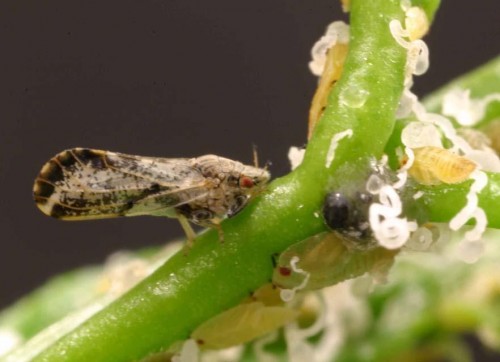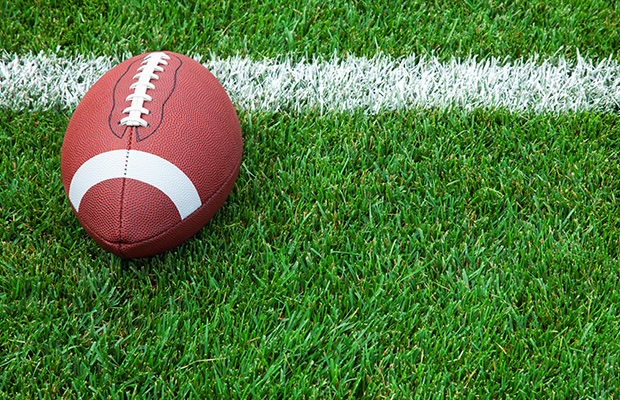
Session aimed at educating public about Asian insect
July 16, 2008Roland Joseph Lafont Sr.
July 18, 2008It’s unusual for a wide receiver to throw more touchdowns than he catches in his collegiate career, but it’s a stat that follows former Louisiana State University player Joe Fakier.
The Thibodaux native tossed three touchdowns, triple the number he actually caught – one – as a Tiger between 1971 and 1973.
“That’s not too hard to remember,” he said, chuckling about his stats. “I was probably the only wide receiver in the nation that threw more touchdown passes than he caught.”
In fact, it was Fakier’s record at LSU that led to a unique, yet interesting conversation with 1973 Heisman Trophy-winning running back John Cappelletti before the Tigers and Nittany Lions met in the Orange Bowl that same year.
“I told him I should have won the Heisman instead of him because I threw more touchdown passes than he did,” Fakier joked. “I ended up getting his autograph out of it.”
The Tigers lost that Orange Bowl game, but it’s stories like the pre-game encounter that Fakier loves to retell.
Perhaps just the mere fact that he was able to play college ball is enough to get him by.
Fakier accepted a full scholarship to Louisiana State University following a successful senior season as quarterback for E.D. White Catholic High School, which ended with the team winning the 1969 state title. The previous year, E.D. White won the championship; Fakier played receiver on the squad.
During those two years with the Cardinals, the Thibodaux standout said he was surrounded by the best teams he has ever been part of.
“The 1969 team didn’t have many seniors,” he explained. “Some people played different positions from the year before. Mike Prejean was a wide receiver in 1968, but became our top running back in 1969. We just had a lot of inexperience. Winning the title in 1968 had helped us prepare for 1969.”
In 1968, after going 7-0-1 in the regular season, the Cardinals headed to the Class A playoffs. Back then, Louisiana High School football was divided into three divisions: 1A, 2A and 3A. (Classes 4A and 5A did not emerge until later.)
After a 47-7 victory over heavily-favored Franklinton in the first round of the playoffs, the Cardinals went on to win two more games and earn a spot in the state championship game. The Cardinals, ranked No. 2 in the state at the time, had to play No. 1-ranked Homer at its home field for the state title. Despite finding themselves once again in the underdog role, the Cardinals put together a solid showing and defeated Homer 28-0 to win the school’s first state championship and finish with an overall record of 11-0-1.
Just being a part of that team was a privilege, Fakier said.
“We had great team chemistry,” he explained. “Not only did we have good football players, but good leaders. Everyone really carried the team a long way.”
But the 1968 team was hit hard by graduations. That’s when head coach O.K. (Pat) Szush asked the young receiver to make the move to quarterback during his senior season. Without hesitating, Fakier accepted.
Although he wasn’t used to playing the position, Fakier learned quickly. Under center, he carried the Cardinals to a 7-2 overall record to get them back in the playoffs.
Ironically, a semi-final 7-0 victory against Homer, this time in Thibodaux, would ensure E.D. White a returning spot in the finals, making Fakier the starting quarterback in a state championship game.
Against Franklinton in the championship game, he helped his team rally from an early 7-6 deficit at halftime and guided the Cardinals to their second straight title with a 20-7 victory.
The team finished 11-2 that season.
“It shows how well coached we were,” Fakier said. “We came out and scored 14 points in the second half just from the halftime adjustments.”
That’s when LSU took notice. Legendary Tiger head coach Charlie “Cholly Mac” McClendon contacted Fakier about possibly playing for the Tigers.
“I heard from them last,” Fakier said of the recruiting process. “I had gone up there for two recruiting visits and ended up being offered a scholarship. I never expected to be playing there, but I was glad to have the opportunity.”
He arrived in Baton Rouge in the summer of 1970. At that time, freshmen weren’t allowed to play varsity ball. It wasn’t until 1971 that Fakier stepped into Tiger Stadium to the cheers of a then-capacity crowd of 68,000. McClendon had moved the varsity player back to his original position – receiver. Fakier had to quickly make the transition to college ball.
“In high school, there wasn’t so much individual technique like in college,” Fakier explained. “We had different periods that would last seven minutes and we would go from one to the other. The biggest difference was learning how to run routes and how to block people. I didn’t do a lot of blocking in high school.”
During his three-year career, Fakier had the chance to play against teams coached by the greats: Bear Bryant’s Alabama Crimson Tide, John Vaught’s Ole Miss Rebels and Nittany Lion coach Joe Paterno. Fakier has surely shaken hands with his share of Hall-of-Famers.
“Looking back on it now, I realize how truly lucky I was to be able to have played against and for coaches of that caliber,” he said. “I remember my senior year being ranked No. 5 in the nation before playing Alabama. We lost and went on to lose in the Orange Bowl (to Penn State). The results weren’t that great but the experience was well worth it.”
Of course, Fakier had to overcome his bumps and bruises along the way. In the third to last game in 1971 against Mississippi State, he severely injured his knee. Although the injury was not career-ending, it forced him to miss the remaining three games of the season and the Sun Bowl. The Tigers beat Iowa State 35-15.
Fakier returned in full force the next season and was part of the Tigers 24-17 loss in the Bluebonnet Bowl to the Tennessee Volunteers. Fortunately, aside from the slight aches and pains attributed to old age, he’s never had any other major problems with the knee injury.
After college, Fakier returned home with a degree in education and started his teaching career. Today, the 52-year-old father is the head baseball coach at Assumption High School. He took the job in 2007 and says he hopes to impart the knowledge he learned during his playing days to his athletes.
To this day, Fakier is quick to credit the skills and talent of those around him. “Without the expertise of Coach Szush, Lance Poinbeouf and the rest of the staff, I don’t know where I would be,” he explained. “Without them the chance to be successful later on in life would have never happened.”
His stats may tell an unusual story, but whether leading his Cardinals to the championship as a teen or leading his teens on the baseball diamond today, he has a great tale to tell.









